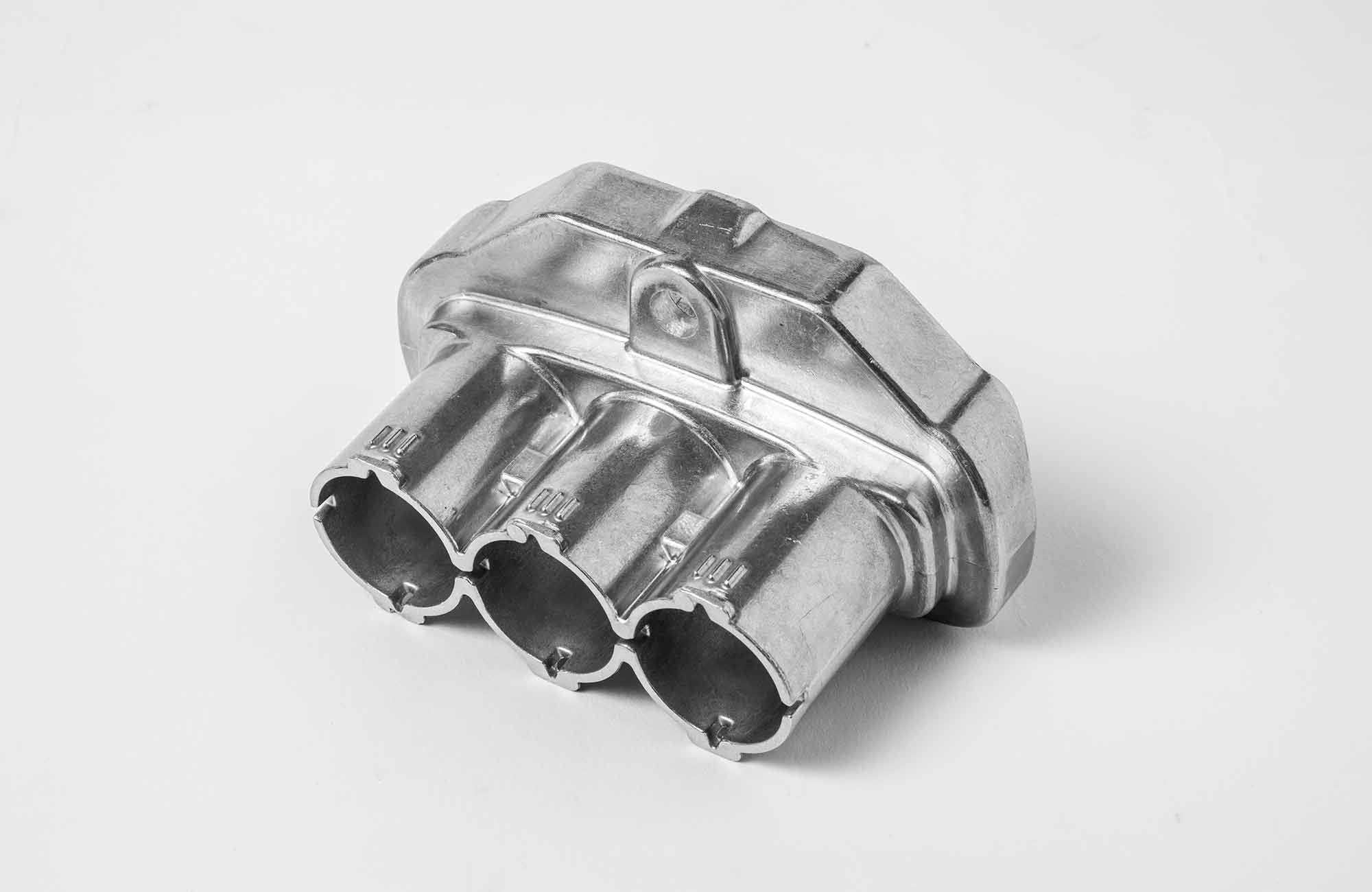Rumored Buzz on Alcast Company
Indicators on Alcast Company You Should Know
Table of ContentsAlcast Company - QuestionsThe 7-Minute Rule for Alcast CompanyThe 25-Second Trick For Alcast CompanyOur Alcast Company PDFsAlcast Company for BeginnersRumored Buzz on Alcast Company
The subtle distinction exists in the chemical web content. Chemical Contrast of Cast Aluminum Alloys Silicon promotes castability by decreasing the alloy's melting temperature level and boosting fluidness during casting. It plays an important duty in permitting intricate molds to be filled up properly. Additionally, silicon contributes to the alloy's strength and use resistance, making it useful in applications where longevity is important, such as vehicle components and engine elements.It additionally improves the machinability of the alloy, making it easier to refine into finished items. In this method, iron contributes to the total workability of aluminum alloys.
Manganese adds to the stamina of aluminum alloys and boosts workability (aluminum casting manufacturer). It is commonly made use of in wrought light weight aluminum products like sheets, extrusions, and accounts. The existence of manganese help in the alloy's formability and resistance to splitting throughout fabrication procedures. Magnesium is a lightweight component that supplies toughness and effect resistance to aluminum alloys.
Alcast Company Fundamentals Explained
It permits the manufacturing of light-weight components with outstanding mechanical residential or commercial properties. Zinc improves the castability of light weight aluminum alloys and aids regulate the solidification process during casting. It enhances the alloy's stamina and solidity. It is often found in applications where detailed shapes and great information are necessary, such as decorative castings and specific automotive components.

The key thermal conductivity, tensile toughness, return toughness, and prolongation vary. Amongst the above alloys, A356 has the highest possible thermal conductivity, and A380 and ADC12 have the cheapest.
The Facts About Alcast Company Uncovered

In accuracy casting, 6063 is fit for applications where intricate geometries and high-grade surface coatings are paramount. Instances include telecommunication enclosures, where the alloy's remarkable formability enables smooth and cosmetically pleasing designs while maintaining structural honesty. Similarly, in the Illumination Solutions market, precision-cast 6063 components produce sophisticated and reliable lighting fixtures that need detailed forms and good thermal performance.
It leads to a finer surface finish and better rust resistance in A360. The A360 displays exceptional elongation, making it optimal for complicated and thin-walled elements. In precision casting applications, A360 is well-suited for industries such as Consumer Electronics, Telecommunication, and Power Tools. Its boosted fluidness permits for detailed, high-precision parts like smart device coverings and communication tool real estates.
The smart Trick of Alcast Company That Nobody is Discussing
Its distinct properties make A360 a useful selection for precision spreading in these sectors, enhancing product sturdiness and quality. Aluminum alloy 380, or A380, is a commonly used spreading alloy with a number of distinct attributes. It offers outstanding castability, making it an excellent option for accuracy spreading. A380 shows excellent fluidness when molten, ensuring intricate and detailed molds are precisely reproduced.
In precision spreading, aluminum 413 shines in the Customer Electronics and Power Tools sectors. This alloy's remarkable corrosion resistance makes it an excellent selection for outside applications, ensuring durable, sturdy products in the stated markets.
The smart Trick of Alcast Company That Nobody is Discussing
Once you have actually chosen that the light weight aluminum die casting process appropriates for your job, an essential following action is choosing on one of the most appropriate alloy. The aluminum alloy you select will substantially affect both the spreading procedure and the homes of the last item. Because of this, you need to make your choice carefully and take an educated strategy.
Establishing one of the most ideal light weight aluminum alloy for your application will certainly suggest considering a vast array of characteristics. These comparative alloy characteristics follow the North American Die Casting Organization's standards, and we have actually split them right into two classifications. The very first classification addresses alloy characteristics that impact the manufacturing procedure. The second covers attributes impacting the buildings of the last product.
The Best Strategy To Use For Alcast Company
The alloy you select for die spreading directly influences several facets of the casting procedure, like how simple the alloy is to deal with and if it is prone to casting problems. Hot breaking, likewise known as solidification cracking, is a regular die casting issue for aluminum alloys that can cause internal or surface-level splits or splits.
Certain aluminum alloys are a lot more susceptible to hot fracturing than others, and your selection must consider this. An additional usual defect discovered in the die spreading of aluminum is die soldering, which is when the cast stays with the die wall surfaces and Discover More makes ejection difficult. It can damage both the cast and the die, so you must look for alloys with high anti-soldering buildings.
Corrosion resistance, which is already a noteworthy feature of aluminum, can vary considerably from alloy to alloy and is a vital particular to think about depending upon the ecological problems your product will be exposed to (Foundry). Wear resistance is another residential property typically sought in light weight aluminum items and can differentiate some alloys